News
Pembrokeshire Paralympian Jodie jokes about her waters breaking ‘on podium’

Jodie Grinham, a Paralympic archer from Pembrokeshire, is preparing to compete for Team GB at the Paris 2024 Paralympic Games, despite being seven months pregnant. Originally from Haverfordwest but now living in Crawley, Grinham will take to the field on Sunday, 1 September, at Esplanade des Invalides for the individual archery event.
Born with brachydactyly, which left her with a shortened left arm and only a half-thumb, Grinham faced early challenges. Doctors doubted she could ever participate in archery, but Grinham and her father refused to give up. After trying various methods, they found a specially designed bow grip that fit her hand, enabling her to pursue the sport she loves.
This marks Grinham’s second Paralympic appearance. She previously won a silver medal with John Stubbs in the Mixed Team Compound Open at the 2016 Rio de Janeiro Paralympic Games.
Grinham’s determination to compete in Paris comes after overcoming significant challenges, including three miscarriages. Her son, Christian, was born prematurely at 28 weeks and spent his first 10 days in an incubator with severe jaundice. Reflecting on that time, Grinham said, ““I didn’t really get to hold him for the first 10 days, he was under a little light in this little box, which was heartbreaking.”
Although doctors have raised concerns that the added weight of the baby could cause complications or even premature labor, Grinham is steadfast in her decision to compete. “We decided we weren’t going to let a Games stop us from extending our family,” she told The Athletic. “We didn’t know if we would ever conceive again. Getting pregnant is not as easy as people think.”
Despite the risks, Grinham is determined to balance her career and family life. “My team have joked a few times that my waters could just break on the podium. That would be quite something,” she said. “I was aware I might not even get to these Games if I had the same problems as my last pregnancy but I’ve decided I want a family and a career, I want to be able to do both.”
I’m sure, like us at the Pembrokeshire Herald, the people of Pembrokeshire will be watching with immense pride as we cheer Jodie on this Sunday.
Health
Doctor struck off after sexual misconduct findings at Withybush Hospital

Hospital medic erased from register for second time after tribunal finds abuse of trust and repeated inappropriate behaviour
A DOCTOR who worked at Withybush Hospital has been struck off the medical register after a tribunal found he sexually harassed junior colleagues and abused his position of trust.
Dr Velmurugan Kuppuswamy was erased from the register by a panel convened by the General Medical Council following findings that he made inappropriate sexual comments, engaged in unwanted physical contact, and displayed what was described as a pattern of sexually motivated behaviour towards more junior members of staff.
The Medical Practitioners Tribunal Service heard the misconduct occurred over several weeks between August and September 2021 while he was working at the Haverfordwest hospital.
The panel concluded he made inappropriate remarks to female colleagues at a social event and touched staff without their consent. His conduct was described as repeated, targeted, and exploitative of the power imbalance between senior and junior medics.
Catherine Moxon, chairing the tribunal, said the behaviour represented a clear abuse of his professional position and a serious failure to maintain appropriate boundaries.
The tribunal found his actions undermined colleagues’ dignity and confidence and risked damaging public trust in the medical profession.
Although Dr Kuppuswamy denied the allegations and pointed to his clinical competence, the panel ruled the misconduct was serious, persistent, and not easily remediable. Erasure, it said, was necessary to protect the public and maintain confidence in doctors.
His name has now been removed from the medical register with immediate effect.
Troubled history
This is not the first time Dr Kuppuswamy’s fitness to practise has been called into question.
Tribunal records show he was previously struck off in 2012 after being found dishonest during an application and interview for a postgraduate cardiology training post at an NHS deanery in England.
The earlier hearing found he falsely claimed to have submitted a Doctor of Medicine thesis, said he was a member of the Royal College of Physicians, and stated he had passed a practical clinical skills assessment.
He initially admitted the deception before retracting parts of his account. The tribunal concluded he had maintained dishonest accounts and wrongly accused another witness of misleading evidence.
He was erased from the register and returned to India, where he later worked at a cardiac hospital.
Return and fresh concerns
In 2020, he successfully applied to be restored to the UK register despite opposition from the GMC, which raised concerns about the timing of his remorse and the lack of independent evidence about his overseas work. The regulator also noted he had not undertaken ethics training.
At the time, a tribunal accepted his assurances that he had changed, describing his evidence as “compelling, heartfelt and genuine,” and concluded that a well-informed member of the public would not be concerned about his return.
Shortly after being reinstated, he began working shifts at Withybush Hospital, part of Hywel Dda University Health Board.
Within months, the fresh allegations that have now led to his second erasure emerged.
The health board has not publicly commented on the outcome of the hearing.
News
Herald journalists to feature in true-crime documentary on local lockdown murder
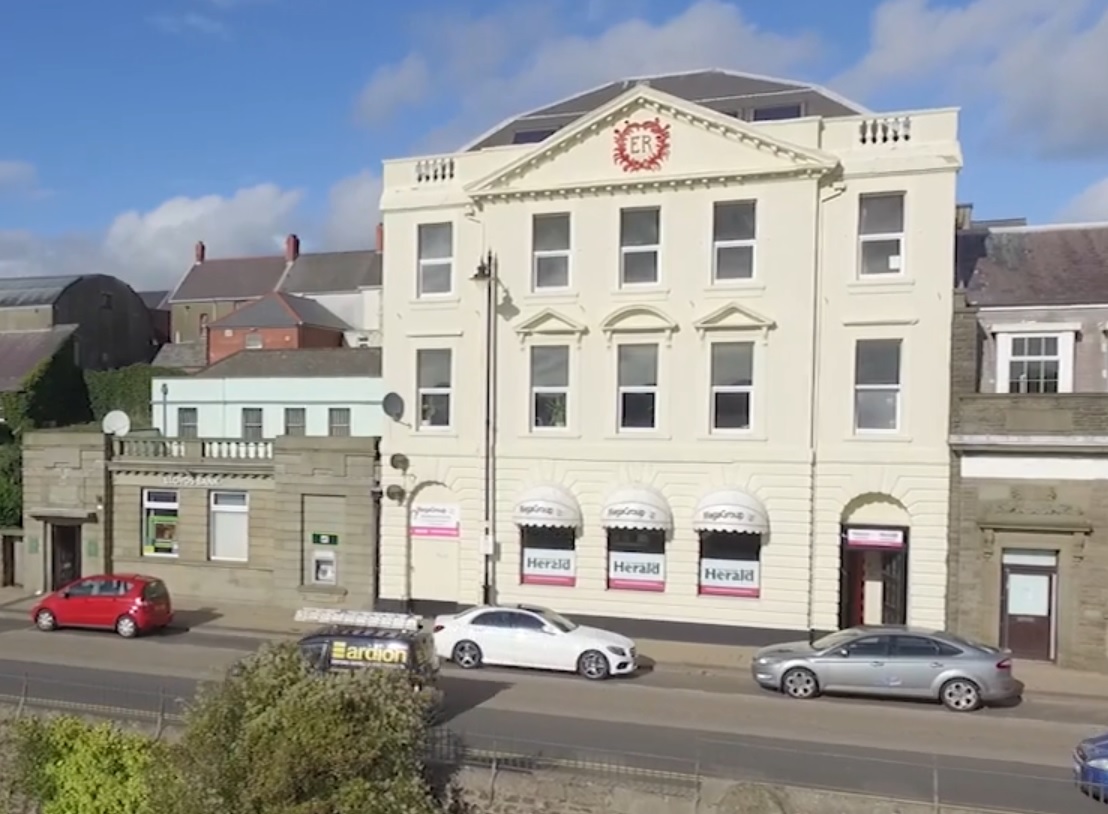
Episode of the BBC’s The Truth About My Murder spotlights the Herald’s in-depth reporting, community devastation, and the chilling sequence of events in Judith Rhead’s killing
THE EDITOR and deputy editor of The Pembrokeshire Herald—Tom Sinclair and Jon Coles—are key contributors to a major BBC documentary revisiting one of Pembrokeshire’s most shocking crimes: the murder of 68-year-old Judith Rhead by her son Dale Morgan during the 2021 Covid lockdown.
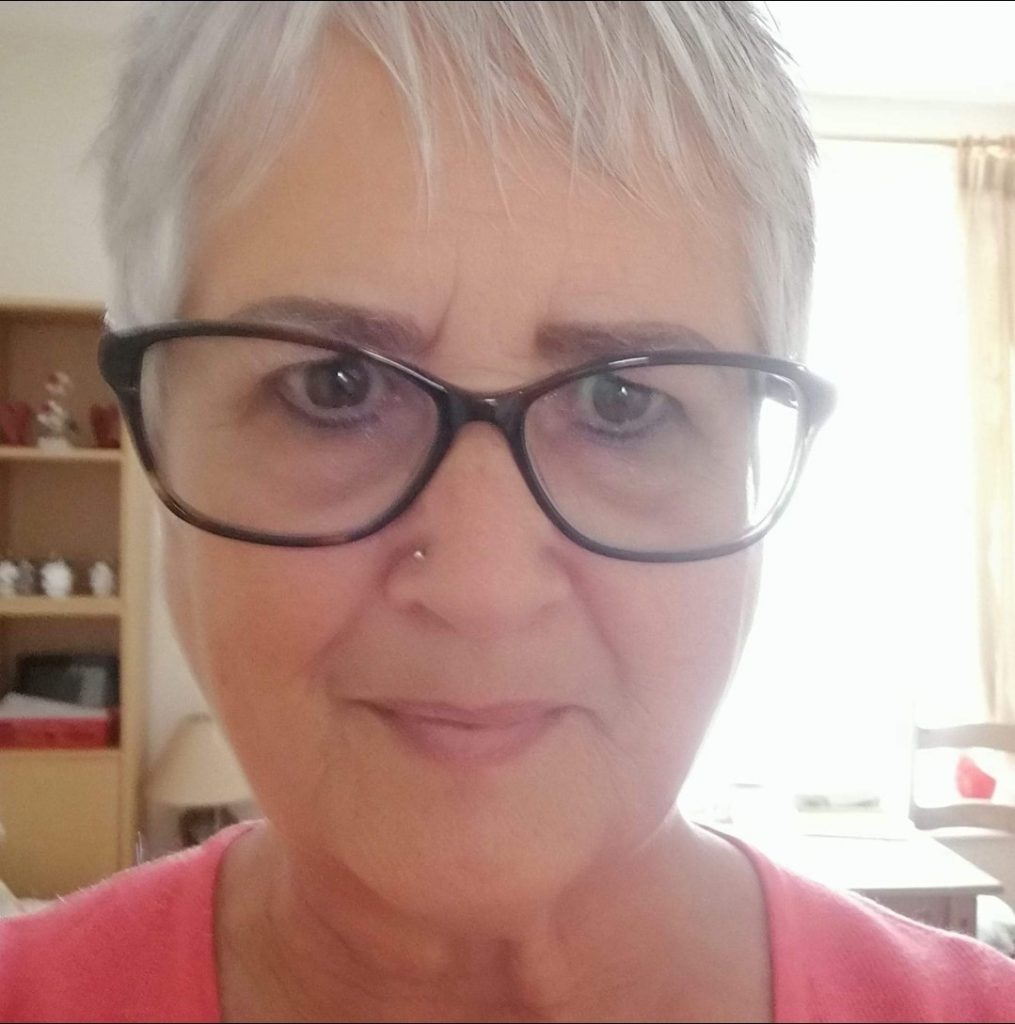
Titled A Killing in Lockdown, the episode from the forensic pathology series The Truth About My Murder (featuring experts like Dr. Richard Shepherd) becomes available on BBC iPlayer from Tuesday, February 3, 2026, with a BBC One airing scheduled for Tuesday 24 February 2026 at 10:40pm.
The programme reconstructs the brutal attack on Judith in her Market Street flat, Pembroke Dock. Her body was discovered on February 20, 2021, after a neighbor’s concern prompted police to force entry amid an open window in winter. Post-mortem findings revealed around 14 hammer blows to the head and asphyxiation via a plastic bag tied over her head, with defensive injuries indicating a desperate struggle.
The Herald’s coverage and contributors’ insights
The episode examines how The Pembrokeshire Herald reported the unfolding story under lockdown restrictions, from early suspicious-death coverage to the murder probe, Morgan’s disappearance and eventual arrest, his guilty plea in August 2021, and life sentence (minimum 21 years, 6 months) in October 2021 at Swansea Crown Court.
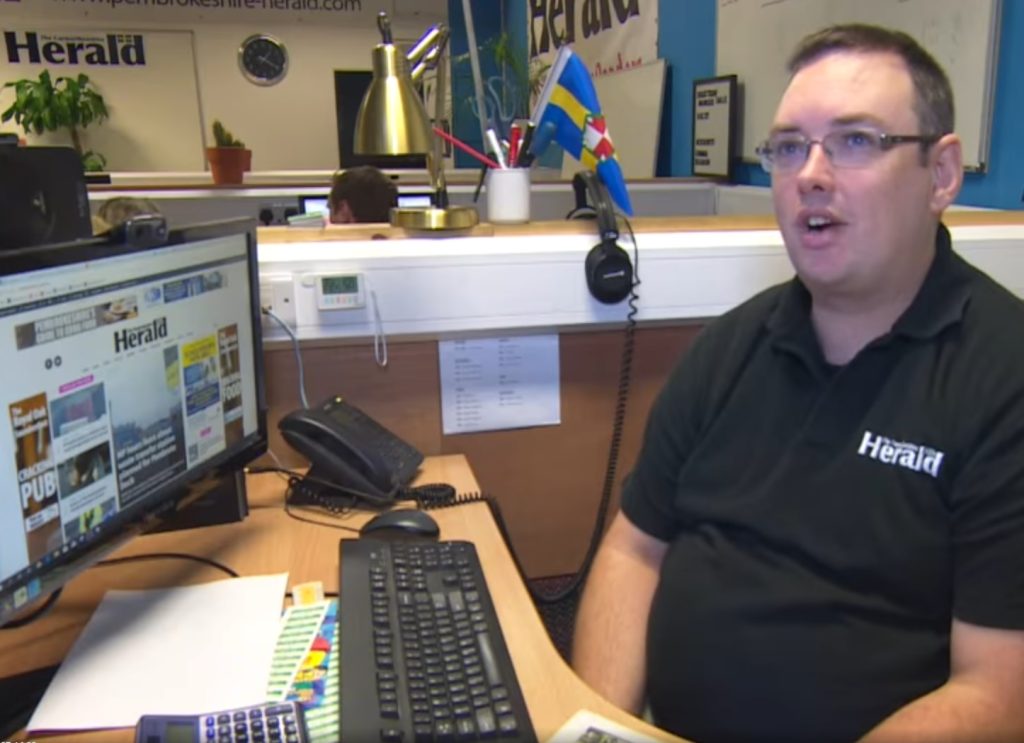
Tom Sinclair and Jon Coles provide insider perspectives on the newspaper’s role. Sinclair details the chronological build-up—what led to the attack, the prolonged concealment, and discovery.
“It was one of those stories that stopped people in their tracks,” Sinclair says. “Everyone knew Judith—she was warm, loved music and singing, and was deeply involved in the community. Lockdown meant no casual visits or check-ins; that isolation let this go unnoticed far too long.”
Jon Coles complements this by highlighting the day-to-day challenges and community pulse—gathering neighbour accounts, navigating restricted access, and capturing the profound local shock when the son’s involvement emerged. Their combined input underscores how local journalism bridged gaps during the pandemic, helping residents process the betrayal while feeding into the national forensic narrative.
Community shock and broader lessons
Hundreds defied restrictions to line streets for Judith’s funeral, reflecting her esteem and collective grief over a matricide enabled by isolation. The episode also explores rarer forensic/psychological aspects of such killings and pandemic vulnerabilities for the elderly.
For local viewers, seeing both Herald leaders on screen highlights the value of regional media in truth-seeking during crises. Stream from February 3 on iPlayer to witness how their reporting contributed to this sobering revisit.
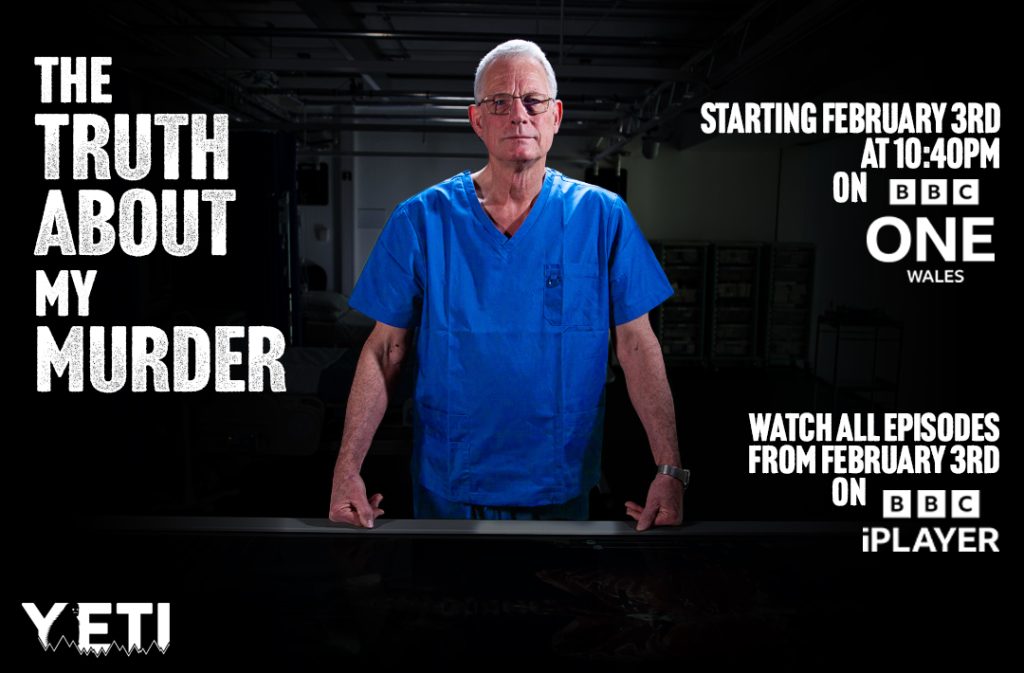
News
Policing powers stay with Westminster as devolution debate reignites in Wales

THE UK GOVERNMENT has ruled out handing control of policing and criminal justice to Wales, triggering fresh political debate over whether the Senedd should ever take responsibility for law and order.
South Wales Central Conservative MS Andrew RT Davies said ministers were “right” to block further devolution, warning that separating Welsh forces from England would weaken efforts to tackle organised and cross-border crime.
His comments follow an exchange in the House of Commons, where Liz Saville-Roberts pressed the Home Secretary on transferring powers to Cardiff Bay. The Government confirmed it does not believe policing and criminal justice should be devolved.

“Must reflect the reality on the ground”
Mr Davies said proposals from Plaid Cymru and other devolution campaigners ignore how crime and communities operate in practice.
“The Senedd must not be put in charge of policing,” he said.
“Senedd ministers have an appalling track record on law and order. As senior police officers say, reforms must reflect the reality that many Welsh communities look east towards England far more than they do to other parts of Wales.”
Senior officers have echoed that concern.
Amanda Blackman, Chief Constable of North Wales Police, recently said her force area is “very much connected from a criminality perspective” to Merseyside and Cheshire.
“Our population move, if you like, is more east to west, west to east than it is north to south,” she said, pointing to the daily flow of commuters, shoppers and offenders across the border.
Long-running constitutional argument
Wales currently has four territorial forces – Dyfed-Powys, South Wales, Gwent and North Wales – but funding, legislation, prisons and the courts all remain under Westminster control.
Supporters of devolution argue this creates a “jagged” system, where services like health, housing and education are run by the Senedd but justice is not.
Plaid Cymru has repeatedly called for Wales to follow Scotland and Northern Ireland, both of which run their own justice systems.
They say decisions made in Cardiff could better reflect Welsh priorities, invest more in prevention, and link policing with mental health, youth services and social care.
A Plaid source said: “Communities in Wales should not have to rely on London to decide how their streets are policed. Justice should sit alongside the other services that deal with the causes of crime.”
Cost and complexity concerns
But critics warn that splitting away from England could come at a high price.
Establishing a separate legal and prison system would mean new administrative structures, courts oversight, inspection bodies and funding arrangements.
There are also practical questions around serious organised crime, counter-terrorism and specialist units that currently operate across England and Wales.
Former policing leaders have previously cautioned that criminals do not respect borders, and intelligence-sharing could become more complicated if systems diverge.
For rural areas such as Mid and West Wales, including Pembrokeshire, officers often work closely with English counterparts on drugs, county lines and cross-border burglary gangs.
Little appetite for change – for now
With the current Government making clear it has no plans to devolve the powers, the issue appears unlikely to change in the short term.
However, with constitutional reform regularly debated ahead of future elections, policing remains a live political question.
For now, responsibility for law and order stays firmly with Westminster – but the argument over who should control Wales’ justice system looks set to continue.
-

 Health3 days ago
Health3 days agoConsultation reveals lack of public trust in health board
-

 News4 days ago
News4 days agoCaldey still unsafe, survivors warn — despite Abbey’s reform claims
-

 Community4 days ago
Community4 days agoPembrokeshire students speak at national Holocaust Memorial Day event
-

 News6 days ago
News6 days agoWales warned against single police force as Lib Dems cite Scotland ‘lesson’
-

 Crime6 days ago
Crime6 days agoMilford Haven man appears in court charged with burglary and GBH
-

 Business6 days ago
Business6 days agoDuke of Edinburgh Inn in Newgale on the market for £325,000
-

 Business7 days ago
Business7 days agoFormer Halifax in Haverfordwest could soon become new high street nail bar
-
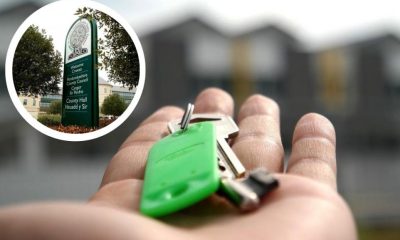
 Local Government7 days ago
Local Government7 days agoPembrokeshire council house rents to increase this year





























